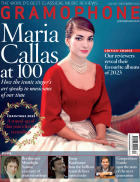Texte paru dans: / Appeared in: |
|
|
Outil de traduction |
|
|
With their latest release, Christophe Rousset and Les Talens Lyriques continue their exploration of the operas of Lully. Premiered in January 1675, Thésée is Lully’s third tragédie en musique (and one of his least-recorded). For other historical information, I defer to the album’s booklet notes, which include one of the best essays I have ever read included in a recording, by Pascal Denécheau, who in 2006 defended his doctorate on Thésée. It’s remarkably rich writing, including all sorts of tantalising historical titbits, ranging from the postponement of the premiere until the outcome of France’s war with the Dutch Republic was known, to the acrobatic children playing the ghosts in Act 3. We also learn that for his libretto, Quinault retained only the part of the Theseus myth relating to the hero’s youth; gone are the more famous episodes such as the slaying of the Minotaur and his romance with Ariadne (and later with her sister Phaedra).
Rousset and Les Talens Lyriques are on fine form. All manner of locations are conjured, from the underworld and its horrors to an enchanted island. To sample some of these colours, head to the opening of the second act for the most sensational sequence of movements. Mezzo-soprano Karine Deshayes is spectacular as Médée, bending the tragic text to her frenzy and vulnerability. Baritone Philippe Estèphe as Égée is particularly fine here, too, his agile delivery working in excellent contrast. Estèphe’s wonderfully centred intonation and breadth of tone make the simple homophonic duet-work with Deshayes unexpectedly sonorous and enjoyable.
Keep going through the act and the music gets better and better. In ‘Que l’on doit être content d’avoir un maître’, the choir and orchestra – what fun percussion! – provide a refined romp. It’s a triumphant rallying force that excellently signals the arrival of Thésée, sung by the tenor Mathias Vidal, who brings extraordinary colour to the role. Take his duet with Deshayes (Act 2 scene 8): Vidal is fabulously frenetic in his rhetoric, then warm and honeyed as he spells out his love-fixed tenderness (‘Mais dans un jeune coeur, la gloire la plus belle / Fait aisément place à l’amour’). Rousset does extremely well to control the pacing of this difficult movement. The organic unravelling of this exchange is captivating, microcosmic of an utterly enjoyable whole. |
|




